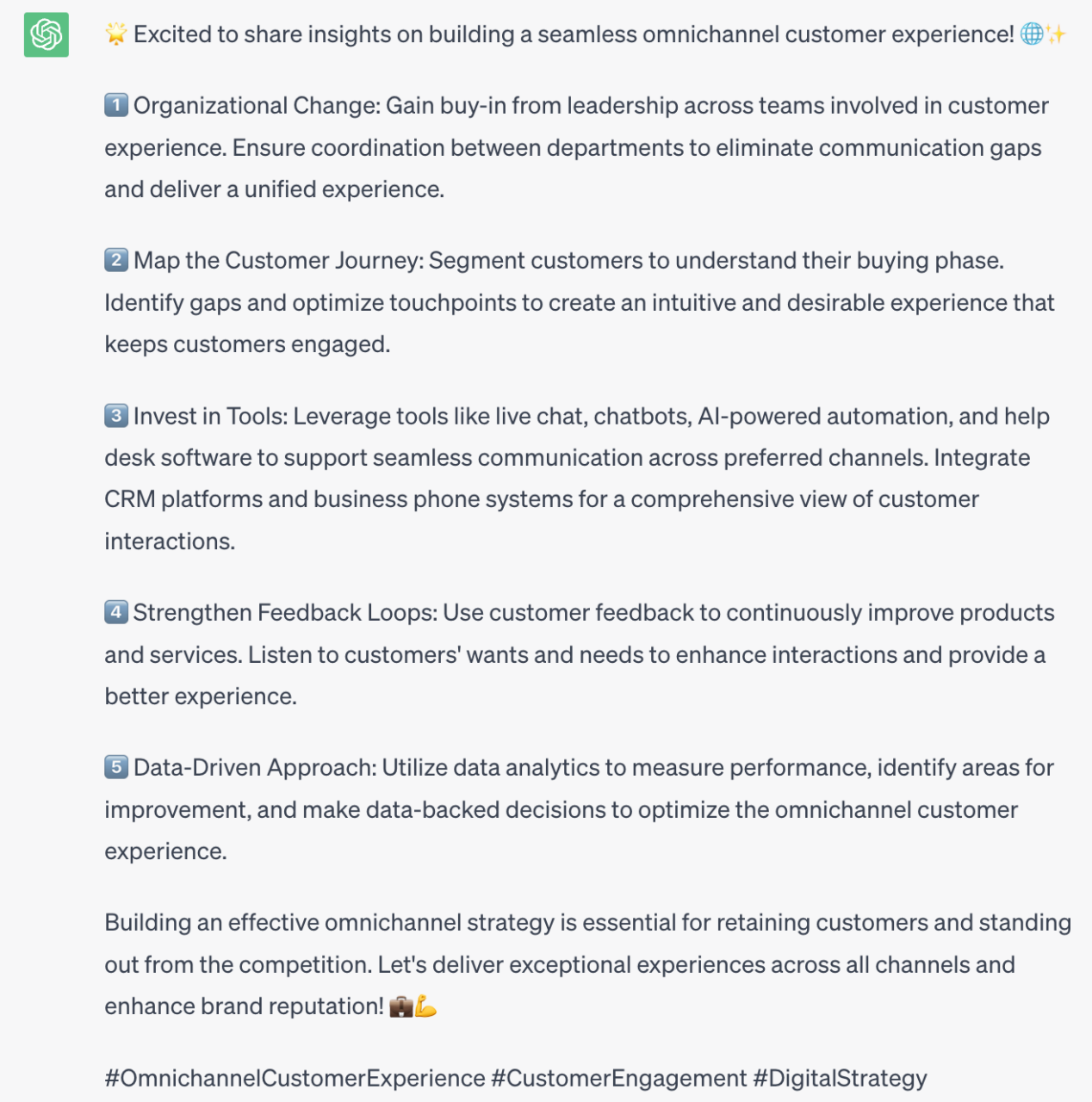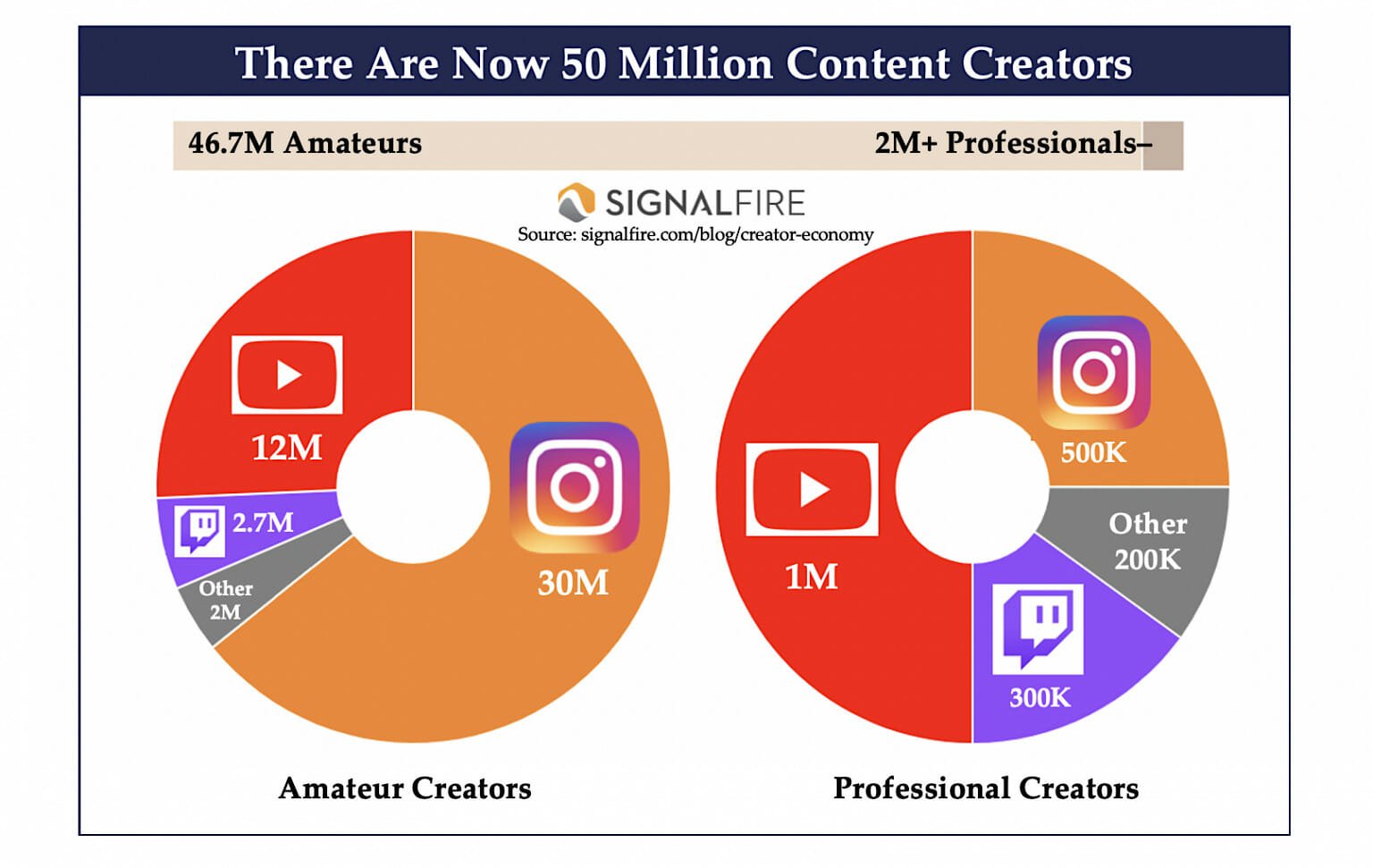As entrepreneurs and marketers, we’re tasked with reevaluating whether the tried-and-true for-profit education model is still a viable strategy in this new era.
For this post, we’re going to delve into the viability of for-profit education as a revenue stream, shedding light on innovative strategies that resonate with the evolving needs of learners and the transformative potential of education itself.
Spoiler alert, we actually think education is becoming less monetizable, but that doesn’t mean your brand can’t benefit from offering educational content to your audience.
Single Grain enables us to increase our impact without increasing our headcount
The Changing Face of Education Revenue Streams
Education isn’t the same revenue driver that it once was, especially not since the advent of mainstream AI like ChatGPT:

And Bard:

Once a steady and predictable product model, the education industry is encountering disruptions from unexpected sources. Information is getting more homogenous and accessible, which makes selling things like online courses, e-books or even webinars trickier.
It’s truly telling when we look at the 40% stock price drop for Chegg, an online education technology company that offers homework assistance and online tutoring. Once a powerhouse in the industry for its provision of affordable book rentals, Chegg championed for accessible curricula. The main driver of the stock value drop was students resorting to AI, effectively not needing any rentable materials.
In the same manner, Pearson, one of the largest educational publishers, also reported declines in stock price, attributing it to similar factors that affected Chegg.
There’s a case to be made that education in its traditional form will likely need to change rapidly in order to offer value beyond what people can now obtain through generative AI platforms. AI isn’t going away and, frankly, it’s only going to get better and present even more utility than it does now.
But AI models still rely on human-made content to inform them, and that requires educational content creators to continue making meaningful resources.
It’s where we start to build an argument that steers away from monetizing a medium that can virtually be obtained easily and for free via AI, and more toward a tool to build audience exposure.
People Are More Apt to Buy Solutions, Not How-To’s
We’re exiting the era where people pay for knowledge. It’s become so ubiquitous that people can usually find the answer they’re looking for if they simply want to know the “how.”
But what people will not stop buying is the end result.
When it’s free to research how to do something via AI, it becomes less viable to have to pay for that same information. However, AI is not yet at the level of being able to actualize our needs in a tangible way.
That’s where the market for complete solutions is still in high demand.
Think about the success stories of fitness brands like Peloton, Climber, and Tonal. They’re not merely teaching exercise routines; they’re providing the gear and tools that help people actually reach their fitness goals. It’s this move from simply sharing fitness know-how to supplying the means for concrete change that sets these brands apart.
Education as a Catalyst for Community and Reach
So where does education fit in? Well, we’re definitely not saying it should or even will disappear. But it needs to become a lot more accessible.
Using education to bring people together and grow your audience takes on a whole new level of importance.
When entrepreneurs share top-notch educational content for free, they’re not only establishing themselves as experts, but also creating a space where a community can thrive on shared knowledge. It’s like sowing seeds that will grow into long-lasting relationships and trust.
Think about how content creators work on platforms like YouTube and social media:

They often share valuable educational stuff without charging a dime, all while focusing on building a loyal group of followers who truly value what they offer. Our Marketing School and Leveling Up podcasts are examples of free content that is designed to provide value against the backdrop of a greater value proposition.
Over time, these communities become lively spaces for discussions, collaborations and meaningful connections – a clear testament to the incredible impact of free education in nurturing lasting bonds.
Now, if they were operating with the mindset from a few years ago and trying to sell their e-book or online course, it would cause many to walk away, because nine times out of ten, they can usually find comparable insights somewhere else for free. And AI makes that information-gathering process even easier and quicker.
Inform First, Monetize Second
With how easy it’s become to research and learn, you ought to be centering your focus on how to make your brand an attractive source for people to listen to. Generative AI tools are getting better at amassing data and information.
The challenge for brands will eventually be fighting to stand out in the crowd amidst a sea of informative content. Pretty soon, the notion of buying a textbook or a video course will be antiquated. Education has to become a vessel for audience growth and community-building.
You can start by capturing hearts and minds with valuable free educational content that resonates deeply with your audience. Once this bond is established, then you can introduce monetization tactics, like affiliate links and sponsored topics.
Whether it’s premium content, exclusive memberships, merchandise or partnerships, the value you’ve already provided ensures a receptive audience willing to invest in the offerings you’ve meticulously crafted, transforming your initial educational generosity into a sustainable and rewarding revenue stream.
Last Thoughts on For-Profit Education Revenue Streams
Amidst these shifts, it’s evident that education’s role in revenue generation is in a transitional phase. The manner in which we do education is changing faster than it ever has, and it is likely to supplant what we’re normally used to.
The challenge isn’t education itself but the approach to harnessing its potential. As we forge ahead, it’s crucial to remember that education is a catalyst for growth, empowerment and connection. People will never stop needing to learn, but the way they accomplish learning will inevitably morph.
When your audience learns there’s more substance to your brand beyond just a transaction for a good or service, it will endear them to your brand even more and keep them coming back for more.
If you’re ready to grow your online education business, Single Grain’s education marketing experts can help!👇
Repurposed from our Marketing School podcast.


